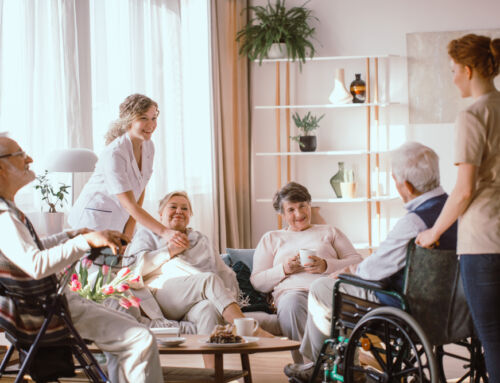You’ve seen the ads for over 55 communities and senior organizations: Smiling silver-haired couples, hand-in-hand, strolling on the beach, reading in a cozy den, rocking on the front porch. It’s a comforting, idyllic marketing image, but walking into the sunset with a mate is not reality for a large portion of the senior population who will age alone.
In real life, roughly one-third of Baby Boomers (today’s 50- to 69-year-olds) are single, most of whom never married or are divorced (only 10 percent were widowed), according to a study in The Gerontologist– an increase of 50 percent since 1980. Additionally, among 40- to 44-year-old women, 15 percent had no children in 2012, a statistic that has increased about 10 percent since the 1980 U.S. Census.
Many of these single and/or childless people made the conscious decision to pursue a career or their independence; for others, circumstances may have made the choice for them. But, now that they are reaching retirement age, the long-term ramifications of their single and childless status could heavily impact their options.
>> Related: Senior Cohousing Can Help Address Loneliness
“Elder orphans” who will age alone
Dr. Maria Torroella Carney, chief of geriatrics and palliative medicine at North Shore-LIJ Health System in New York, calls this demographic of seniors “elder orphans.” At the annual meeting of The American Geriatric Society, Dr. Carney and her colleagues presented research, which revealed that nearly one-quarter of Americans over age 65 lack someone (like a family member) to care for them. This group of elder orphans is thus at an increased risk of becoming physically or socially isolated, according to the study.
The impacts of aging alone are far-reaching. Carney and team’s findings suggest that seniors who feel lonely have increased difficulty with completing daily tasks, show signs of a more rapid cognitive decline, and have higher rates of coronary heart disease. Further, socially isolated seniors are at an increased risk for medical complications, mental illness, mobility issues, and healthcare access problems.
Aging alone requires planning
So if you are one of the thousands of people who fall into the single and childless category as you approach retirement and your golden years, what should you do to ensure you are able to receive the care and support (mentally, physically, and financially) that most seniors will eventually require? As with most age-related topics, the keys to ensuring you are well-cared for as you age are to communicate your wishes and to plan ahead.
Here are a few ways to prepare for the future…
Prepare your documents
It is advisable for single people to select a trusted friend or loved one who can serve as their proxy. While you are still of sound mind, consider designating that person as your durable power of attorney for healthcare; most attorneys can assist with the necessary paperwork for a nominal fee. The durable power of attorney designation will allow the person you select to make healthcare decisions for you if you are no longer able to. This person should know where to find your insurance card, Social Security number, and other crucial documents like your will.
Consider retirement housing options
Is your current residence senior-friendly? If not, it may be wise to look at other housing options while you are still relatively young and healthy, especially if you are single.
Continuing care retirement communities, often referred to as CCRCs or lifecare retirement communities, offer a spectrum of senior housing options, as well as healthcare for the long-term. Or perhaps simply moving to a home with fewer stairs in a walkable city with good public transportation would be a sensible option for you.
Live healthfully
One of the best ways to prepare to age independently is to make good choices early on with your health, which will hopefully stave off many preventable, chronic health conditions. A healthy diet, regular exercise, and preventive healthcare can all go a long way to ensure you are happy and vigorous well into your senior years. And to keep your mind sharp, try word or number puzzles.






